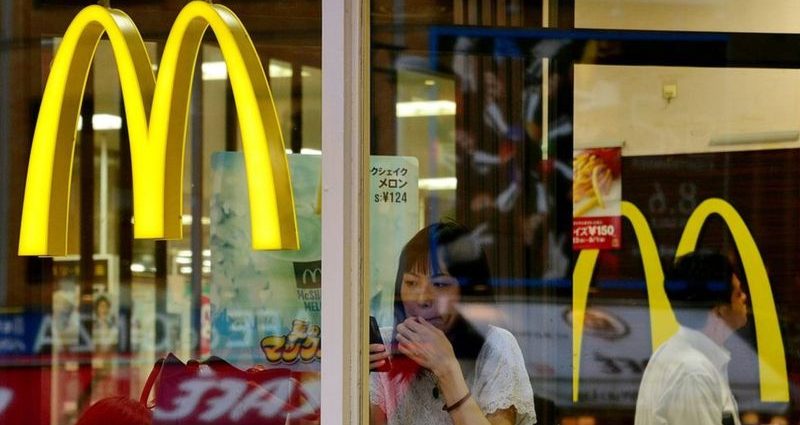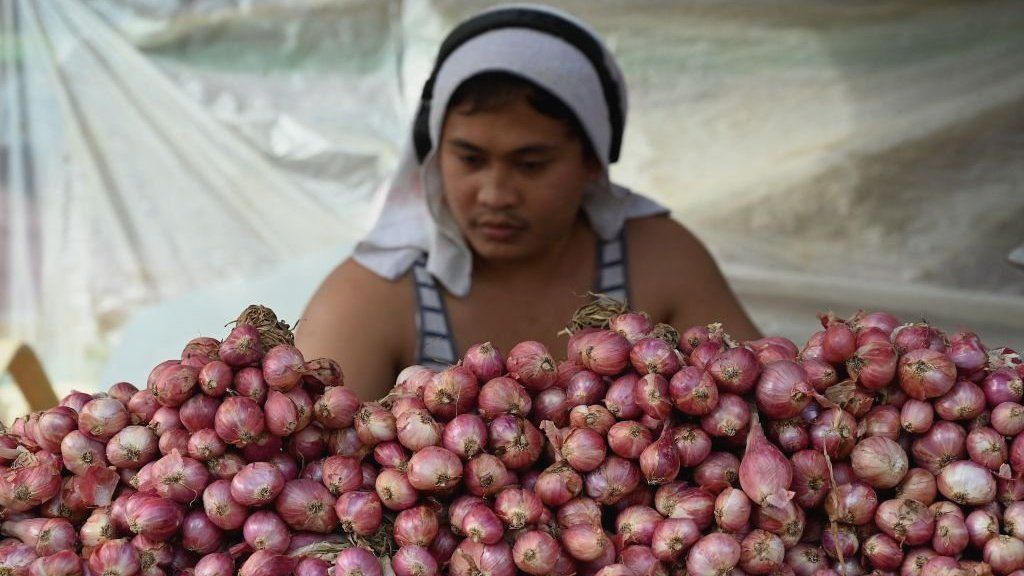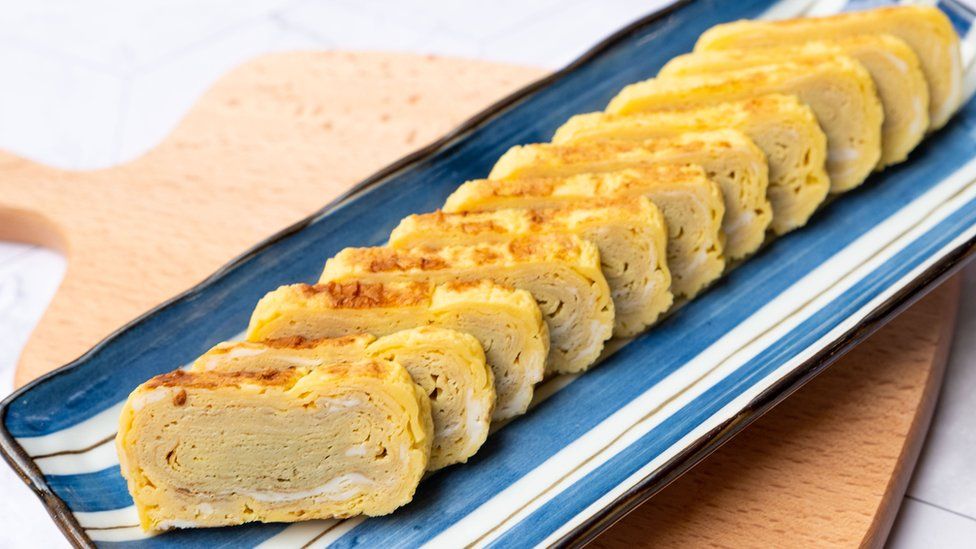
Fancy an omelette made from fish instead of eggs?
In Japan, some people are having to make the swap as the country battles its worst outbreak of avian influenza on record.
It has led to millions of chickens being culled, a shortage in eggs and sent the price of egg-based dishes soaring. In short, eggs are becoming a luxury.
And that’s a huge problem when they are a staple in Japanese cuisine – from egg rolls to omurice and soft-boiled yolks on ramen.
Hard to predict
Better known as bird flu, avian influenza is an infectious disease of poultry and wild birds that has been around for a century.
The world however is now going through its worst-ever outbreak – perhaps due to mutations in the virus, scientists say.
Japan, in particular, has been hit hard. It has been forced to cull a record 17 million chickens, or about 9% of egg-laying hens. Wholesale egg prices have surged more than 70% in the past year, according to data from one local egg seller.
A kilo of medium-size eggs now costs about 350 yen (£2.11; $2.62), says JA. Z-Tamago, a unit of the National Federation of Agricultural Cooperative Associations.
For the consumer, the price shock is less steep, but the impact is flowing through in what’s being struck off menus.
McDonald’s Japan last month had to warn diners that it might have to suspend sale of its popular Teritama burgers during peak periods. Teritama is a portmanteau of teriyaki sauce and tamago which is Japanese for eggs.
While McDonald’s had managed to diversify its egg sources to not impact its regular offerings, it is was “watching the situation carefully”, spokesman Jonathan Kushner told the BBC.
The issue is simply that supply in the country is unstable. “It is hard to predict what the situations will be like in the summer and the fall,” he said.
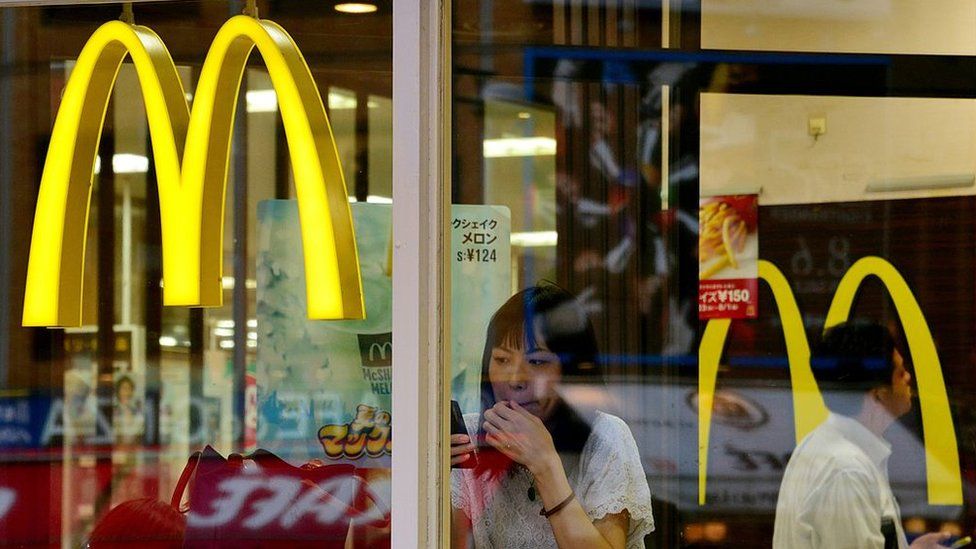
Japan’s 7-Eleven convenience stores have also had to suspend sales of about 15 items since February. In addition, stores nationwide have tweaked their recipes of sandwiches and salads to scrimp on eggs.
Consumers are also having to pay more. Food company Kewpie, known for its distinctly flavoured mayonnaise made from egg yolks, is raising prices by up to 21% starting this month.
Even with the price hike, it’s expecting its net profit to be down 47% this financial year due to the surging cost of eggs.
Smaller businesses have also been forced to cut back. In February, casual dining chain Skylark Holdings suspended sales of various menu items including fried rice with eggs and pancakes.
Japanese-style poached eggs, which were previously offered for free to customers with sukiyaki hot pot orders, now cost 55 yen each.
About 28% of restaurant companies listed in Japan have suspended or may consider suspending parts of their menus, according to a study of 100 such eateries by research firm Teikoku Databank this week.
Thee firm added that it did not foresee egg supply in Japan to”normalise” in the near future given the mass culling of hens.
Food security experts also say price pressures will likely continue for the near future.
Production isn’t expected to fully recover as the bird flu outbreak shows no signs of abating, said Katsuhiko Kitahara, an executive research fellow at Norinchukin Research Institute.
“Some farms are expected to go out of business due to high feed prices,” he told the BBC.
So that’s led to a surge in restauranteurs and home cooks seeking alternatives. For example, seafood giant Nissui Corporation makes a tamagoyaki – a Japanese rolled omelette – from Alaskan pollack.
The product had been on its shelves since the second half of 2022, developed to meet the needs of consumers with egg allergies.
It had never been a “big-selling product”, company spokesman Tetsuya Iida told the BBC.
But they’ve seen a fivefold increase in supermarket shipments this year.
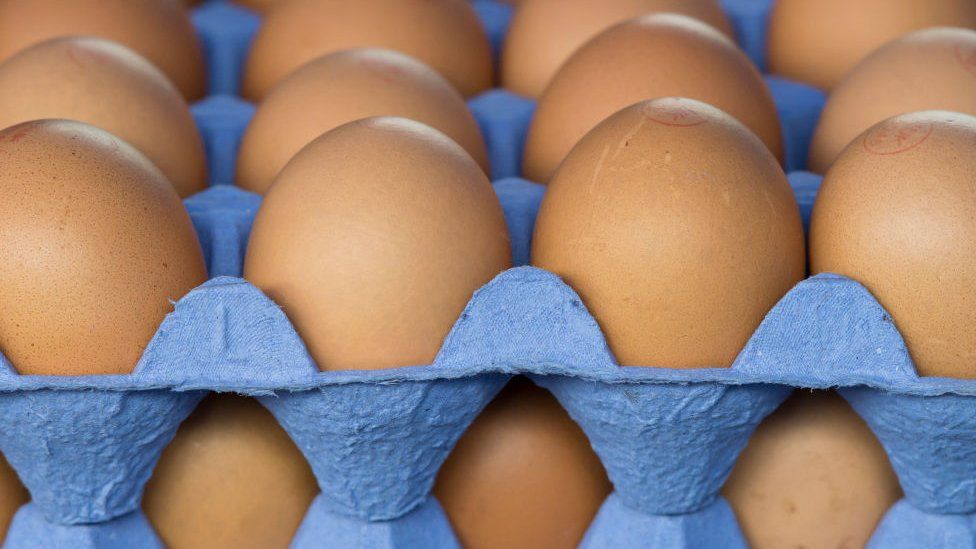
“At this point, we are conducting aggressive sales activities,” Mr Lida told the BBC. He declined to reveal absolute sales volumes.
Meanwhile local food company 2foods last month also announced a plant-based version of omurice – a popular Japanese comfort food – featuring an egg alternative made from vegetables like carrots and cannellini beans.
Dubbed Ever Egg, the egg-alternative is a joint development between 2foods and Japanese food manufacturing giant Kagome.
2foods told the BBC it had received more queries about Ever Egg from retailers and restaurants in recent months, but also declined to disclose specific numbers.
“The [current] global avian influenza outbreaks is a serious social issue. As a result, more Japanese consumers are paying attention and curious about egg substitute products,” said Tetsuya Torii from 2foods.
The demand is such that people are joking now about where else they could source the precious commodity.
On April Fools’ Day, JA. Z-Tamago, the local egg seller posted on Twitter an image of eggs planted from the ground.
“We have succeeded in growing the world’s first eggs!… The pungent grassy flavour is addictive,” it tweeted, as a joke, but perhaps reflective of how much of a national concern the egg shortage has been.
Related Topics
-
-
14 January

-

